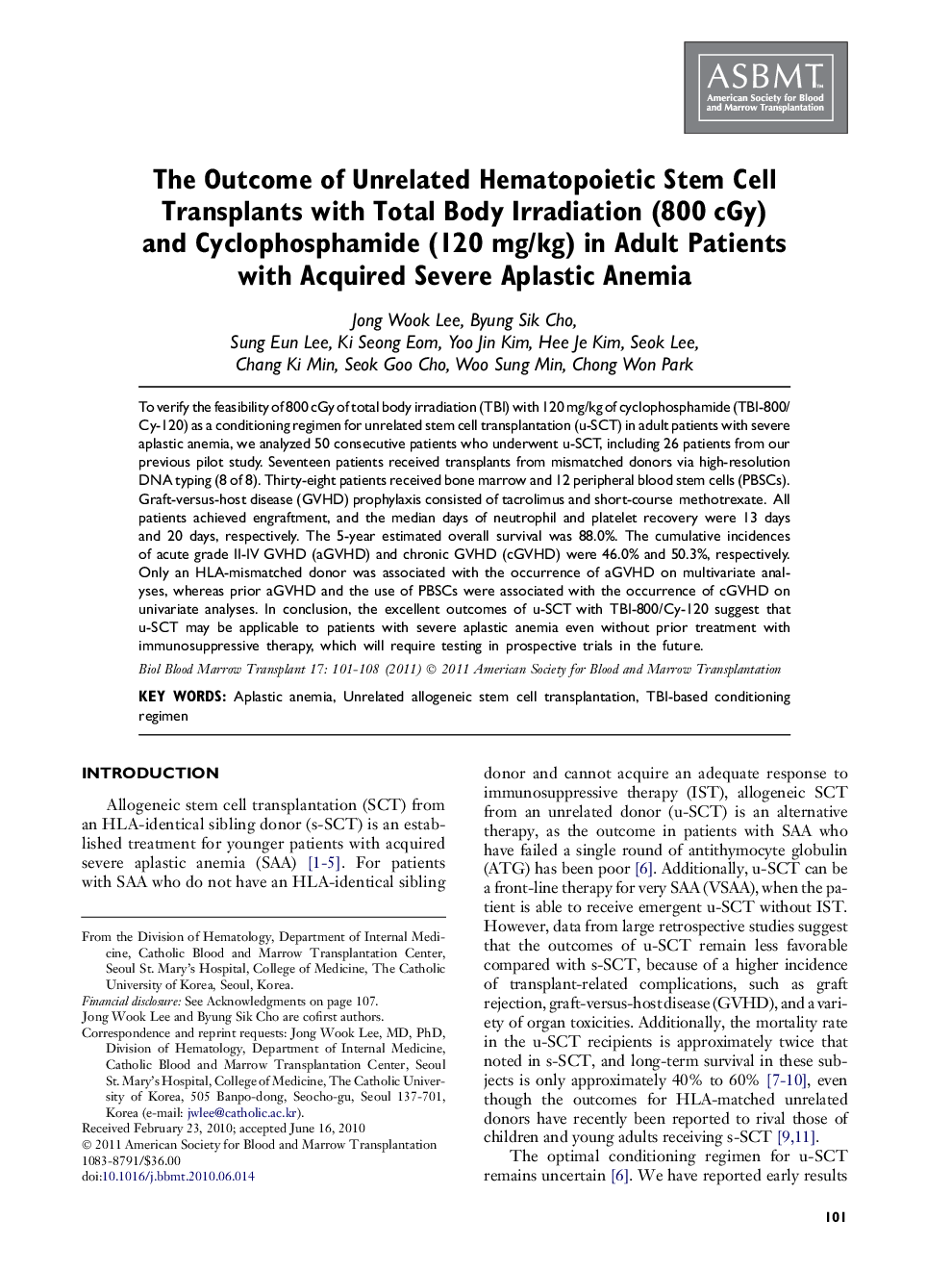| Article ID | Journal | Published Year | Pages | File Type |
|---|---|---|---|---|
| 2104018 | Biology of Blood and Marrow Transplantation | 2011 | 8 Pages |
To verify the feasibility of 800 cGy of total body irradiation (TBI) with 120 mg/kg of cyclophosphamide (TBI-800/Cy-120) as a conditioning regimen for unrelated stem cell transplantation (u-SCT) in adult patients with severe aplastic anemia, we analyzed 50 consecutive patients who underwent u-SCT, including 26 patients from our previous pilot study. Seventeen patients received transplants from mismatched donors via high-resolution DNA typing (8 of 8). Thirty-eight patients received bone marrow and 12 peripheral blood stem cells (PBSCs). Graft-versus-host disease (GVHD) prophylaxis consisted of tacrolimus and short-course methotrexate. All patients achieved engraftment, and the median days of neutrophil and platelet recovery were 13 days and 20 days, respectively. The 5-year estimated overall survival was 88.0%. The cumulative incidences of acute grade II-IV GVHD (aGVHD) and chronic GVHD (cGVHD) were 46.0% and 50.3%, respectively. Only an HLA-mismatched donor was associated with the occurrence of aGVHD on multivariate analyses, whereas prior aGVHD and the use of PBSCs were associated with the occurrence of cGVHD on univariate analyses. In conclusion, the excellent outcomes of u-SCT with TBI-800/Cy-120 suggest that u-SCT may be applicable to patients with severe aplastic anemia even without prior treatment with immunosuppressive therapy, which will require testing in prospective trials in the future.
